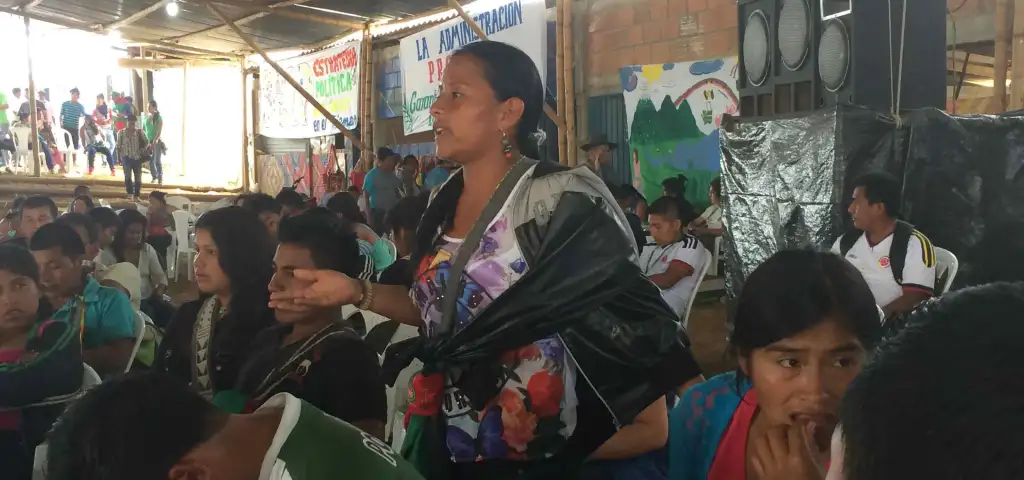
Myriam Méndez-Montalvo served as representative for the Andean Region and Southern Cone until the end of January 2015.
Last month, Colombian President Juan Manuel Santos signed a decree granting indigenous communities greater autonomy to govern themselves and manage resources at the local level—including the administration of public services such as education, healthcare and water utilities. Although the legal groundwork for self-governance of indigenous communities was laid out in the country’s 1991 constitution, the clause had not been officially implemented until now. And so this policy win represents the culmination of years of struggle and advocacy—and an historic achievement for the Indigenous Peoples Movement in Colombia, indigenous communities and organizations, who have long sought greater autonomy, self-determination and recognition of their cultural identity.
One of these organizations is the Association of Indigenous Councils of Northern Cauca (ACIN). For two decades, ACIN has worked to define the contours of traditional systems of governance, explain them to the national government and advocate for their legitimacy. Supported by the foundation, ACIN has been working to prepare for the transfer of power by promoting empowerment and conducting training for the administration and management of indigenous territories in Northern Cauca, Colombia. The organization has worked to help indigenous communities exercise their own agency and consolidate social and economic development processes, as secured by ILO Convention 169, the United Nations Universal Declaration of Human Rights and the political constitution of Colombia. ACIN has led capacity building efforts for the 19 indigenous councils, conducting trainings and providing technical assistance related to the administration, organization and management of the ancestral indigenous territories in Northern Cauca.
Among the other 100 representatives of Colombia’s 95 recognized indigenous communities who attended the signing ceremony was Luis Fernando Arias, head of National Indigenous Organization of Colombia (ONIC), who said the decree represents an important “reconfiguration of a new political and administrative state for indigenous peoples.” Supported by Ford, ONIC has played a critical role in advocating for greater indigenous autonomy, seeking recognition for indigenous authorities, convening indigenous representatives to develop common strategies, and promoting the participation of indigenous people in public policies. The foundation is currently supporting ONIC’s efforts to improve the visibility of the indigenous population by doing preparatory work for Colombia’s upcoming national census.
While this decree certainly signals progress for the indigenous movement, successful implementation will depend on adequate resource allocation, and on strengthening the capacities of vulnerable communities so they are better equipped to engage in participative development—efforts that are central to the foundation’s work in the Andean Region and Southern Cone. We hope to continue to build on the momentum created by this historic victory and capitalize on new opportunities emerging from this evolving context, described to us by ONIC leader Juvenal Arrieta as “constituting a new technical, legal and political scenario for interculturalism in Colombian society, manifest by newly empowered expressions of power, participation and democracy in Colombia.”
